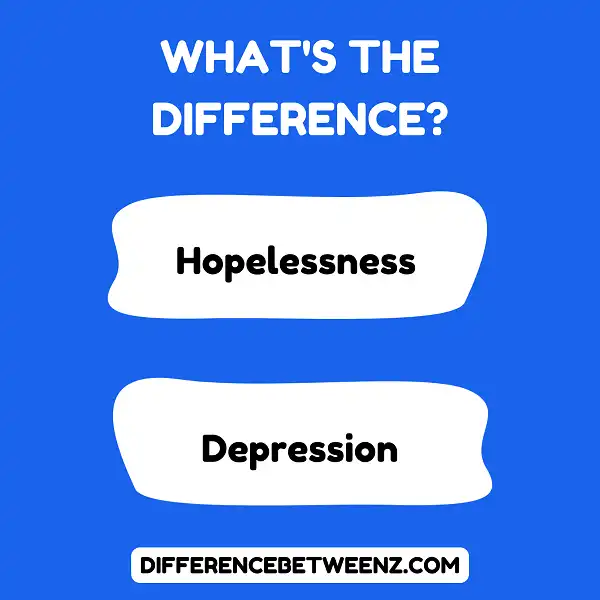Depression is often characterized as a feeling of hopelessness. But what is the difference between depression and hopelessness? And how can you tell which one you are experiencing? Here we will explore the difference between these two terms and how to get help if you feel like you may be suffering from either one.
What is Hopelessness?
Hopelessness is a feeling of despair, typically when faced with a difficult situation. It is the belief that there is no way out or that things will never get better. Hopelessness can be overwhelming, and it can make people feel like they are stuck in a dark hole with no way out.
Hopelessness is often accompanied by feelings of sadness, anxiety, and worthlessness. People who are experiencing homelessness may withdraw from friends and family, lose interest in activities they once enjoyed, or start using drugs or alcohol to cope with their feelings.
If you are feeling hopeless, it is important to reach out for help. There are many resources available to support you through this difficult time. Hopelessness is not permanent, and with help, you can begin to feel better.
What is Depression?
Depression is more than just feeling down or sad. Depression is a medical condition that causes a persistent low mood and a loss of interest in activities. Depression can make it difficult to concentrate, eat, sleep, and enjoy activities that once brought pleasure.
- Depression symptoms can also include feelings of hopelessness, worthlessness, and guilt. Depression affects how you think, feel, and behave and can lead to physical problems. Depression is different from normal sadness in that it interferes with your daily life and lasts for weeks or months, rather than days.
- Depression is one of the most common mental disorders, and anyone can experience it at any stage of their life. Depression is treatable but left untreated it can lead to serious consequences such as substance abuse, job loss, and suicide.
- If you are experiencing any of the above symptoms for more than two weeks, it is important to see a doctor or mental health professional so you can get the help you need.
Difference between Hopelessness and Depression
Hopelessness and depression often go hand-in-hand, but they are not the same thing.
- Hopelessness is a feeling of despair and helplessness, whereas depression is a more general feeling of sadness and low mood. Depression can cause feelings of hopelessness, but it can also be caused by other factors, such as major life changes or traumatic events.
- Hopelessness, on the other hand, is primarily a cognitive state – it’s a way of thinking about the future that leads to feelings of despair. If you’re feeling hopeless, you may believe that things will never get better and that there’s no point in trying to make improvements.
- This negative outlook can fuel depression and make it difficult to recover. If you’re struggling with depression, it’s important to seek help from a mental health professional.
They can help you to understand your thoughts and feelings and develop a plan for managing your depression. Hopelessness is a common symptom of depression, but it is treatable. With help, you can manage your Hopelessness and start to feel better.
Conclusion
The difference between hopelessness and depression is an important one to understand. Hopelessness may be a precursor to depression, or it may exist on its own. It’s important to seek help if you feel hopeless because there are treatments available that can help you feel better. Depression is a serious mental illness that requires treatment; left untreated, it can lead to suicide. If you think you might be depressed, please seek professional help.


